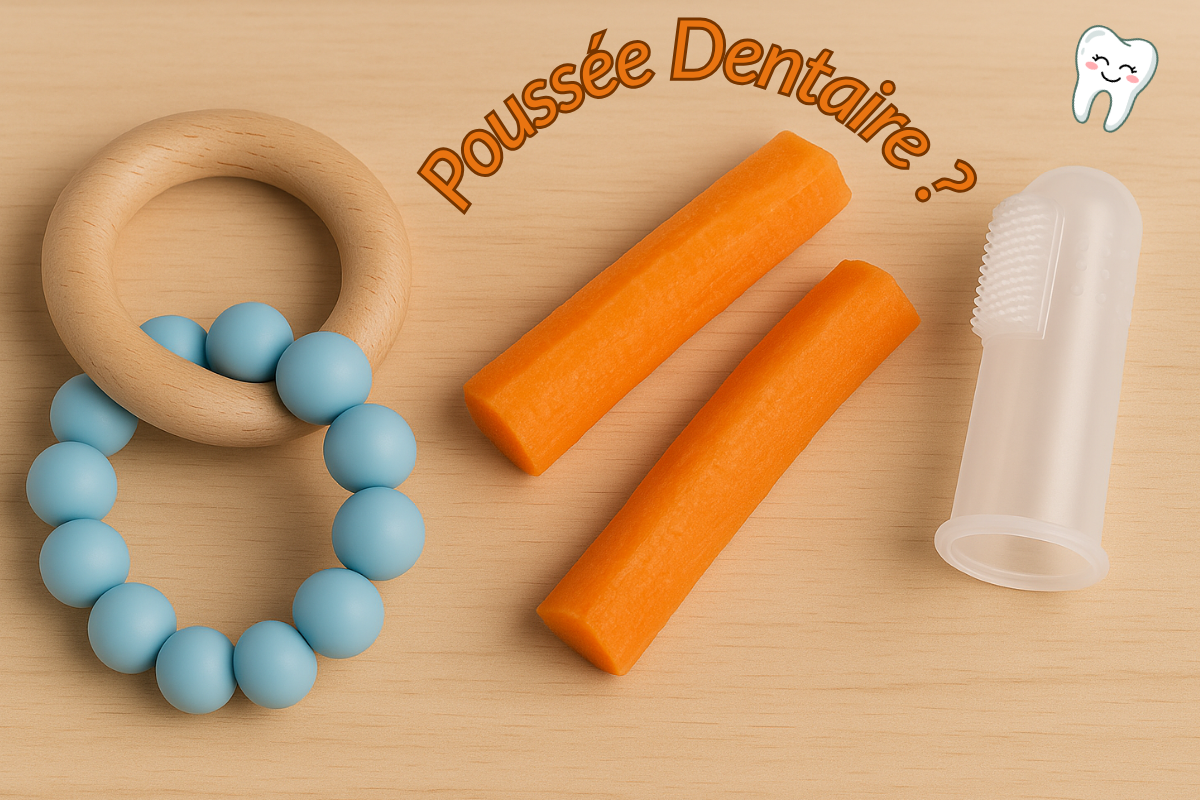Teething is an inevitable stage in a baby’s development, but one that many parents still dread. Discomfort, crying, irritability, sleep problems… every baby reacts differently to the arrival of their first teeth. While homeopathy can play a calming role, it is not the only solution. There are also a number of simple, natural and effective measures that can help you get through this period with greater peace of mind.
Relieve baby by massaging gums sensitised by teething
Gum massage is a gentle way of soothing the pain associated with teething. Simply rub baby’s gums gently with a clean finger or damp compress. This stimulates local circulation and soothes tension in the gums. There are also silicone brushes suitable for babies, which can be slipped over the finger for a more comfortable massage.
Favour certain cold foods or foods to chew on when teeth are trying to come out
Certain foods can help to soothe the pain while encouraging the teeth to come through . Chilled carrot or cucumber sticks, for example, can be offered under supervision. Cold has a natural anaesthetic effect on the gums. However, hard foods should be avoided for babies who do not yet have teeth, as should any food that could present a choking hazard.
Cold compotes or plain yoghurt can also soothe baby’s mouth while providing a pleasant experience. In all cases, choose age-appropriate textures and keep a close eye on every mouthful.
Use teething rings wisely when teething
Teething rings are a classic ally, but you still need to choose them carefully. BPA-free models are preferable, adapted to the size of baby’s mouth and designed for safe chewing. Versions that can be placed in the fridge (not the freezer) offer a refreshing effect that’s good for the gums. Some models include textured areas that massage the gums directly during chewing. It’s a simple way for children to relieve tension on their own.
Take care of oral hygiene from an early age, even while teeth are growing
Even if no teeth are visible, good oral hygiene is essential. Daily cleaning of the gums with a damp compress not only helps to prevent infection, but also gets baby used to doing it. As soon as the first teeth appear, a soft baby toothbrush and water are all that’s needed. Hygiene helps to reduce inflammation, which can indirectly reduce the discomfort of teething.
Soothe teething-related sleep disorders
Dental pain often intensifies at night, making it more difficult to sleep. Maintaining a calm, reassuring and regular environment is essential. A soft nightlight, a little massage before bedtime, or a soothing routine with a lullaby can help baby fall asleep despite the discomfort. It’s not unusual for baby to need to be carried or rocked more during this period. This is temporary, and responding to his need for soothing is also a way of helping him to get through this stage gently.
Conclusion
Teething is a sensitive time for both baby and parents. But it’s reassuring to know that there are simple, natural and effective ways of easing the discomfort. And if you have the slightest doubt, don’t hesitate to ask a health professional or your pharmacist. Every baby is unique, and personalised advice often makes all the difference.





